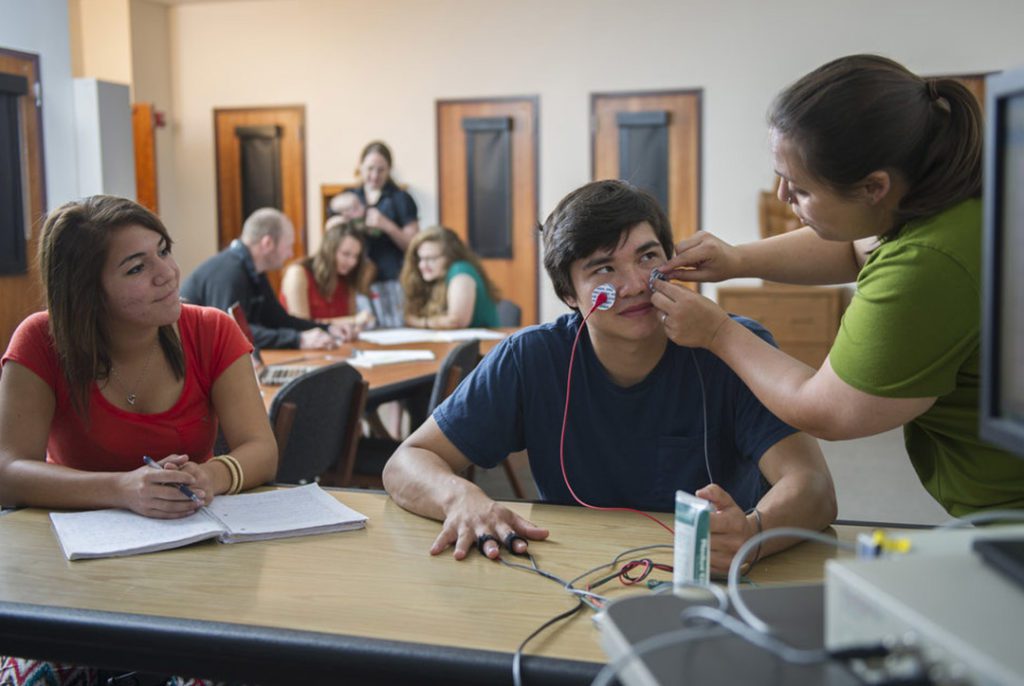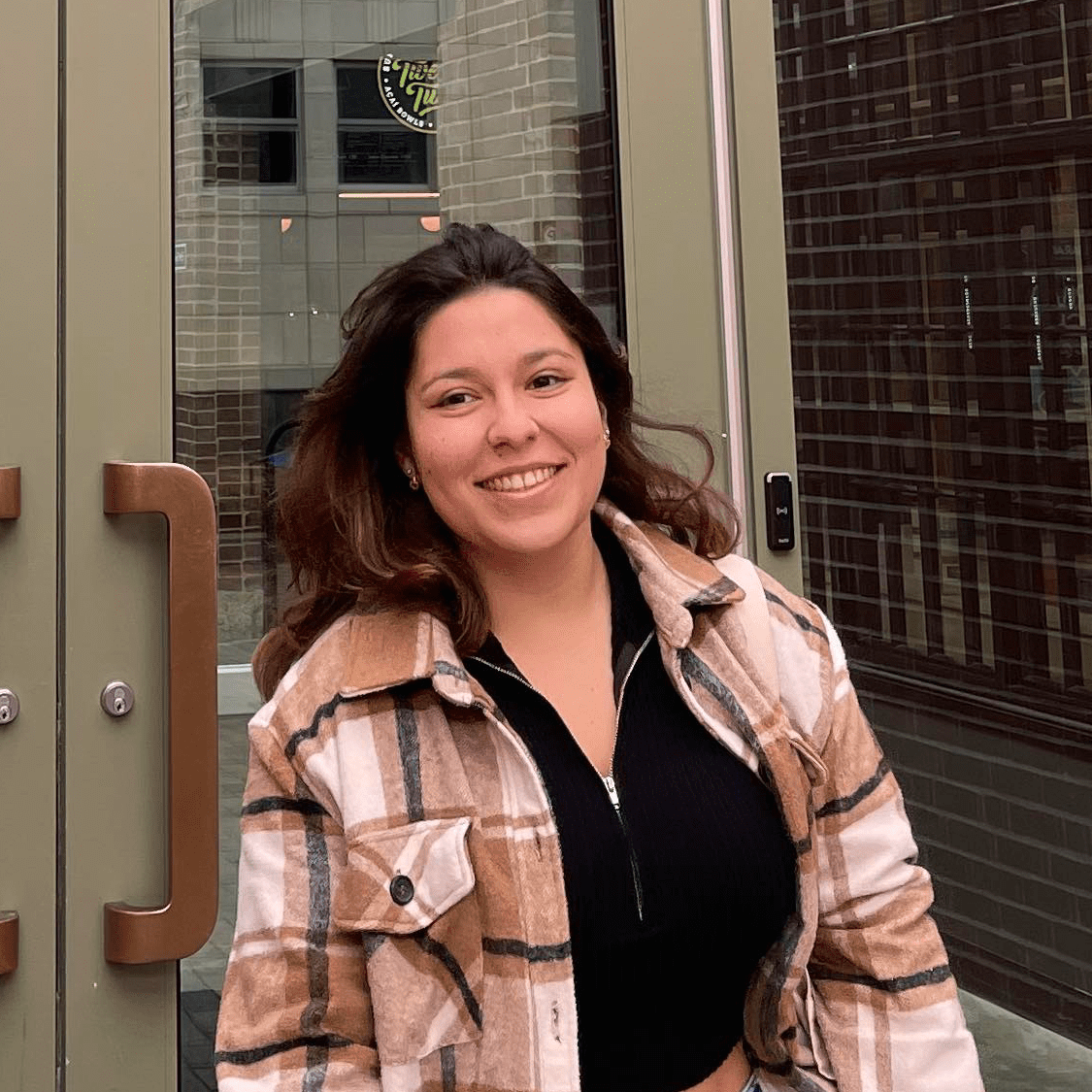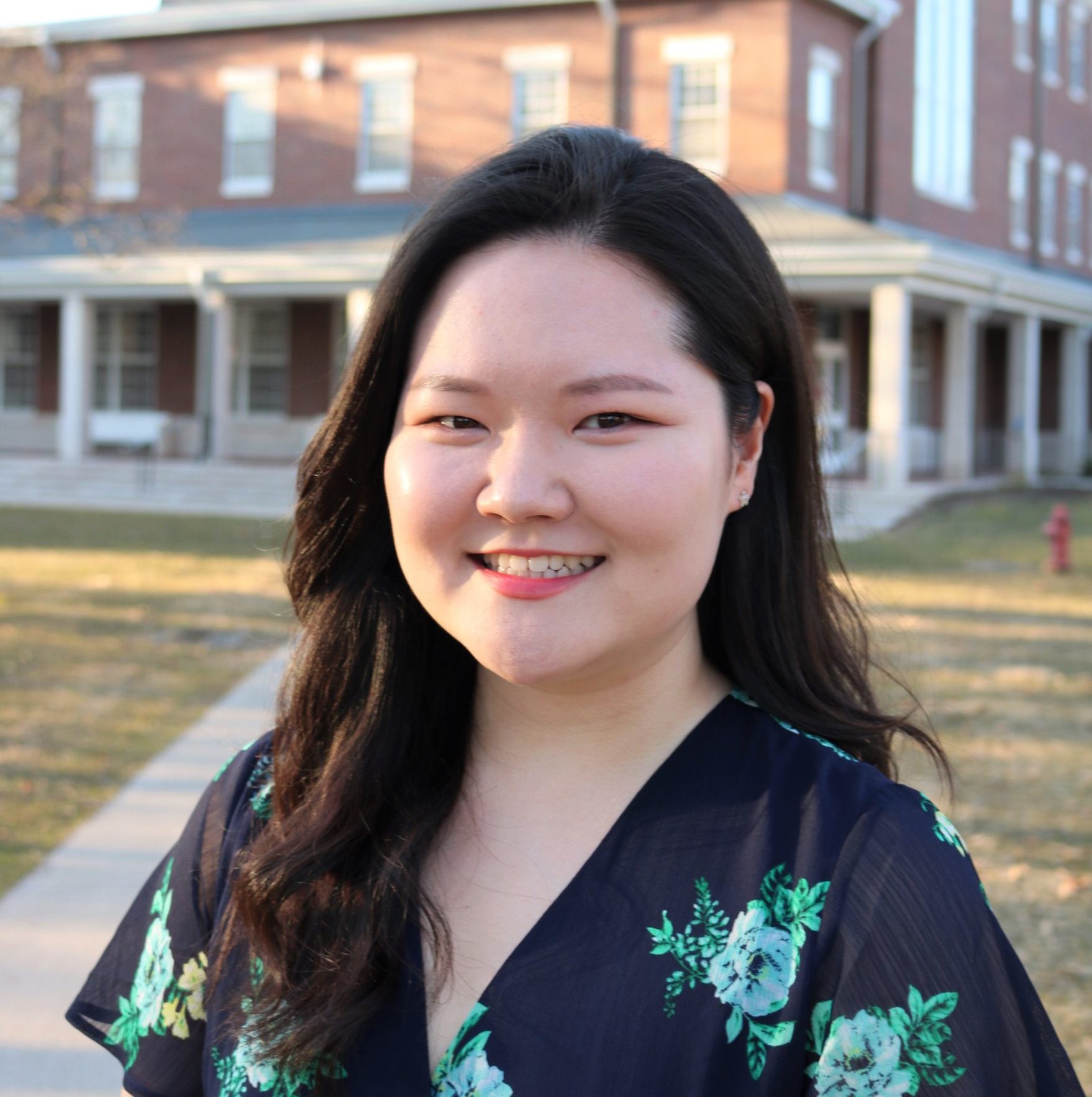Psychology
Psychology at Earlham enables you to study human behavior through conducting research, engaging in collaborative inquiry with peers and faculty, and practicing counseling skills. This approach allows you to experience the full scope of what it means to be a psychologist in today’s world.
We offer several unique and innovative courses not often seen at other small liberal arts colleges, including Psychology of Happiness, Psychology of Sport, Psychology of Sustainability, Psychoactive Drugs and Behavior, and Human Sexuality.

Start your adventure
Sign up for more information about Earlham College.
Recent graduates have gone on to pursue advanced degrees in fields like clinical psychology, school psychology, experimental psychology, counseling, organizational psychology, human computer interaction, education and early childhood development.
A hands-on approach to the science of human behavior
As a first- and second-year student, you will become proficient in the methods and practice of psychology through courses that include activities such as replicating published research, volunteering in community mental health settings and practicing counseling skills with other students.
You will have multiple opportunities to apply psychological methods through conducting your own research, assisting faculty with ongoing research projects and working in the community.
Hands-on research
Between 12 and 15 students each semester serve as research assistants for faculty examining memory for future events, motivation and emotion, relationships between stress and health and the effect of gendered pronouns.
Independent projects
As a senior psychology major, you will conduct an independent research project on a topic that most interests you.

Our faculty
We are student-focused lifelong learners, excited about applying intellectual discoveries to real-world problems. In our work, we tackle issues of medical ethics, racism and health, children’s school readiness, motivation, the power of gender and much more.
Frequently asked questions
The psychology program begins with core courses that cover the many different theoretical and methodological approaches to the field. In these courses, you will survey a wide range of psychological subfields and explore their relevance to current social issues and everyday life.
Additionally, you will acquire a basic understanding of the principles of research and critical thinking that serve as the foundation of science.
Earlham psychology students have pursued graduate studies in clinical mental health counseling, organizational psychology, applied animal behavior and welfare, education, and healthcare, among other fields.
Recent graduates have landed jobs as behavioral clinicians, therapists, research assistants and teachers, to name a few.
Are you intrigued by how people think or why they behave in certain ways? Understanding human psychology is critical in many careers, and psychology majors work in a variety of fields—from counseling and education to scientific research to business administration and nonprofits.



